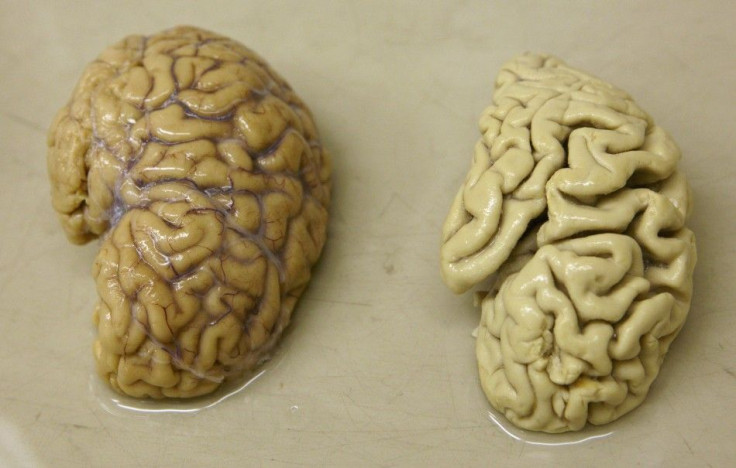New Alzheimer Disease Scan Approved By FDA

The FDA's approval of a new imaging test gives doctors the ability to diagnose Alzheimer's disease with some certainty for the first time. Until now, Alzheimer's disease was diagnosed by the exclusion of other conditions and could only be concretely diagnosed after death.
Alzheimer's disease is the most common form of dementia in the United States, affecting more than 5 million people, according to the Centers for Disease Control and Prevention. The number of people who suffer from the disease is expected to double every 20 years as population increases and people live longer
Symptoms of Alzheimer's include memory loss, confusion, difficulty completing familiar tasks, decreased judgment and problems speaking or writing.
The majority of Alzheimer's patients have clumps of a protein called amyloid in their brain, unlike typical healthy people, -- though what role this plays in the disease is unknown. Before the development of this imaging test, amyloid was only detectable during an autopsy. This new test utilizes a chemical called florbetapir, brand name Amyvid, which sticks to amyloid and can be detected using a PET scan.
The test was rejected by the FDA in March 2011 over concerns that doctors would have trouble interpreting the scans. Eli Lilly & Co, the company that developed the scan, has worked with the FDA to develop a three-hour training program for doctors.
Some researchers are questioning how useful the scan is, since there is currently no way to alter the disease's progression, but Dr. Daniel Skovronsky, CEO of Avid, the pharmaceutical company that will distribute the drug, said the approval is a great step forward.
The approval of Amyvid offers physicians a tool that, in conjunction with other diagnostic evaluations, can provide information to help physicians evaluate their patients, he said in a statement. and find out if there's amyloid or not.
If amyloid is present in people with memory problems, it gives a clue that Alzheimer's could be a cause of the memory loss. If a test for amyloid is negative, it indicates that Alzheimer's is less likely. However, since the presence of amyloid alone does not indicate Alzheimer's, the test cannot diagnose the disease in someone without memory impairments.
Approximately 20 percent of healthy adults have been found to have large amounts of amyloid in their brain postmortem, Denise Park, director of the Center for Vital Longevity at the University of Texas, told the Wall Street Journal.
[Amyloid] is likely to play an important role in learning both how to diagnose and treat the disease, but it's still an open question at this point for asymptomatic people, she said.
The approval of the scan is a double-edged sword, according to the Alzheimer's Association, an advocacy group for Alzheimer's patients. While the approval expands clinical and research opportunities, the organization said in a statement it is concerned about the the possibility of less than scrupulous operators offering imaging services and making unrealistic promises about the value of florbetapir imaging to sometimes vulnerable and worried individuals.
Amyvid will be available in limited quantities beginning in June.
© Copyright IBTimes 2024. All rights reserved.











